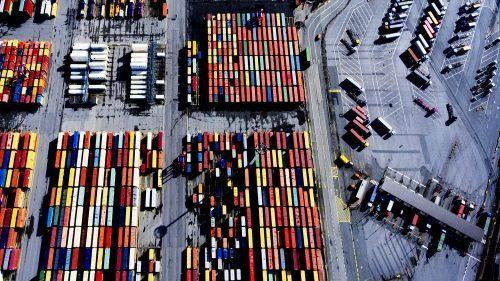April 07, 2017 | Industry Insights
What Do the New Carrier Alliances Mean for the Shipping Industry?

Beginning April 1, 2017, liner-wide consolidation has entered its third generation with three new alliances: the Ocean Alliance, THE Alliance, and 2M Alliance. The first vessel-sharing consolidation of ocean carrier vessels took place back in the 1980s and 1990s and then again in 2011. The goal of these alliances is for carriers to pool their resources together to address overcapacity and underutilization of their vessels and save money. The carrier runs under their name, with their name also on the Ocean Bill of Lading, however the vessel carrying the cargo is not theirs. They are in essence sharing vessel space.
What does this new generation of alliances mean to you as a shipper?
There may be some rough waters ahead as carriers move vessels, change schedules and realign equipment (vessels and containers) to meet the needs of the new routing that comes with vessel-sharing. Some direct routes will change and many that were direct will become transship points. What lanes will be impacted is not yet clear. This all may result in schedule delays, potential space and container shortages and possibly a slight increase in transit time and rates over the next couple of weeks or so.
The three new alliances consist of the following carriers:
- Ocean Alliance: CMA CGM (with APL), China COSCO Shipping, Orient Overseas Container Line (OOCL) Line and Evergreen Line
- THE Alliance: Hapag Lloyd (with UASC), Mitsui OSK Lines (MOL) Ltd., Nippon Yusen Kaisha (NYK Lines), Kawaski Kisen Kaisha, Ltd. (K Line), Yang Ming Ltd.
- 2M Alliance: Moller-Maersk Line (with Hamburg Süd and Mediterranean Shipping Company (MSC)
The alliances are also working towards setting up safeguards that could be used when an individual member line goes bankrupt in the network, a la Hanjin. The safeguard, wrote William Doyle, Commissioner of the U.S. Federal Maritime Commission (FMC), would be a type of funding instrument that could be used to pay operational expenses to bring ships to port and unload containers to ensure that cargo is not stranded on the ocean.
The DOJ probing new alliances
Prior to these alliances going into effect, in March the Department of Justice (DOL) ordered several executives of the container shippers to testify in an antitrust investigation. Among those subpoenaed were executives from Moller-Maersk, Hapag Lloyd, Evergreen, and Orient Overseas Container Line. According to an article in Reuters, the U.S. is worried that the proposed alliances, which cover about 45% of all global shipping capacity, could lead to anti-competitive behavior. This, according to Reuters, “could result in slowing down global trade, as about 90% of the world’s traded goods by volume are transported by sea with over 60% by value, or $4 trillion, on container ships. The rest is on other vessels such as oil or gas tankers.”
Critics argue that these alliances will result in higher rates and lower service. To this end, the FMC, Doyle wrote, is committed to closely monitoring the alliances and the competitive nature of their networks to determine whether prices increases and services decrease – and to what extent.
Roanoke Trade, a leading provider of insurance and surety solutions for transportation and logistics providers, will continue to monitor the impact of these alliances on freight forwarders and LSPs, and keep you updated on any new developments. For information about our insurance products and services, please contact one of our Roanoke Trade professionals at 1-800- ROANOKE (800-762- 6653).





